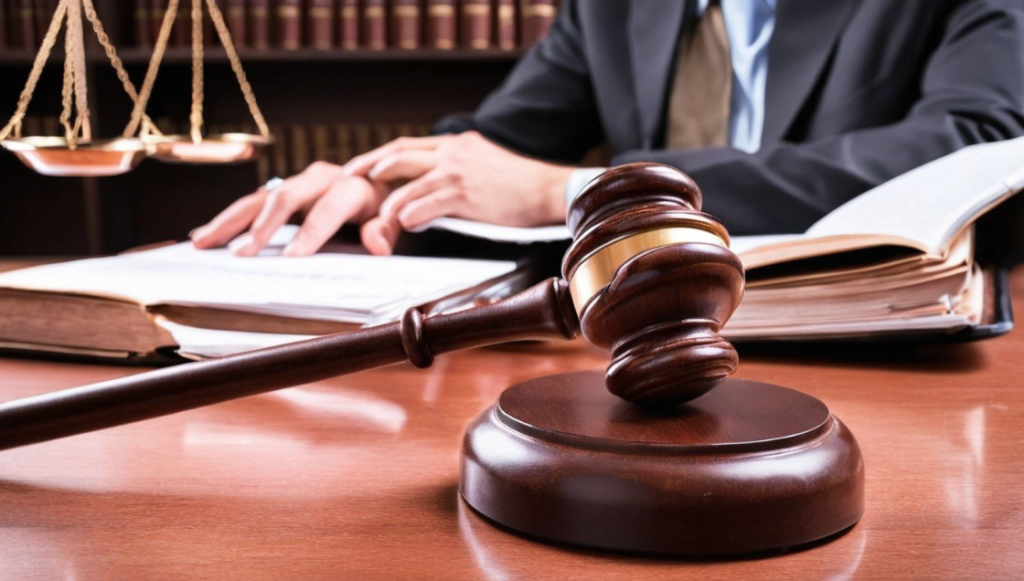In the complex domain of personal injury litigation in New Jersey, proving negligence stands as a daunting challenge. Negligence, a legal concept determining fault in injury cases, demands a careful process of evidence collection and presentation.
This article looks into the complexities surrounding the pursuit of proving negligence in Garden State, shedding light on the challenges faced by both plaintiffs and their legal representatives.
Consequence of Negligence in Personal Injury Cases
In the domain of personal injury litigation, negligence stands as a cornerstone, shaping the foundation of lawsuits that seek to redress the harm caused by others. At its core, negligence determines whether an individual failed to uphold a standard of reasonable care, leading to injuries suffered by another party. This pivotal legal principle serves as an important for justice, aiming to hold those responsible accountable for their actions and the resulting consequences.

It is through the lens of negligence that the scales of justice weigh the actions of individuals, ensuring a balanced and accountable resolution in the pursuit of reparation for those who have experienced injury.
Challenges in Proving Negligence in NJ
Complexity of Legal Standards
Processing New Jersey’s legal domain presents a hurdle in itself. The state’s legal standards for proving negligence can be complex, demanding a comprehensive understanding of statutes and case law. Legal standards may vary between different jurisdictions within the state, adding complexity to negligence claims.
The ever-evolving nature of legal precedents requires attorneys to stay abreast of recent decisions that may impact their cases.
Comparative Negligence Doctrine
New Jersey follows the comparative negligence doctrine, where damages are apportioned based on the percentage of fault each party bears. Proving negligence becomes a delicate balancing act, considering the plaintiff’s potential contributory negligence. Establishing the defendant’s negligence while addressing any potential contributory negligence by the plaintiff requires a nuanced approach.
Time Constraints and Statute of Limitations
Meeting legal deadlines is important in personal injury cases. The statute of limitations in New Jersey imposes strict time constraints within which a plaintiff must file a lawsuit. Failure to file within the stipulated time frame may result in the loss of the right to pursue a claim.
Proving negligence demands thorough evidence collection, which becomes challenging within the confines of statutory timelines.
Lack of Concrete Evidence
Proving negligence necessitates presenting tangible evidence to support the plaintiff’s claims. In some cases, this evidence may be elusive or challenging to obtain. Relying on witness testimonies may be challenging if there are no neutral bystanders to the incident. Lack of documentation or records detailing the incident may hinder the plaintiff’s case.
Insurance Company Resistance
Insurance companies often vigorously defend against personal injury claims, making the pursuit of negligence claims an uphill battle. Insurance companies may employ various strategies to minimize their liability, including disputing the severity of injuries or challenging the validity of the negligence claims.
Plaintiffs may face resource disparities when dealing with large insurance corporations, making it crucial to have a skilled legal representative.
Practical Applications of Proving Negligence

Proving negligence in a personal injury case involves demonstrating four key elements:
- Duty of Care: This involves demonstrating that the defendant, be it a person, entity, or organization, owed a specific duty of care to the plaintiff. For instance, in a car accident scenario, a driver has to operate their vehicle responsibly and adhere to traffic regulations.
- Breach of Duty: Demonstrating that the defendant breached this duty through negligent actions or inactions. Returning to the car accident example, if the driver was texting while driving, thus breaching their duty to operate the vehicle safely, it establishes a breach of duty.
- Causation: Establishing a direct link between the breach of duty and the injuries sustained. In our car accident case, it would require demonstrating that the driver’s negligent behavior directly caused the injuries suffered by the plaintiff, such as whiplash or fractures.
- Damages: Demonstrating the tangible harm or losses suffered by the plaintiff. For instance, the plaintiff might provide medical reports and bills as evidence of the damages incurred due to the car accident.
Consult with Personal Injury Attorneys
In processing the complexities of personal injury cases in New Jersey, seeking guidance from experienced professionals becomes important. One notable personal injury law firm in the field is the Rosengard Law Group, specializing in personal injury in New Jersey. Consulting with such reputable legal experts ensures that individuals receive personalized advice and support throughout the process of proving negligence.
Getting in touch with a car crash injury lawyer can provide you a strategic advantage, enhancing the prospects of a successful legal resolution for those seeking justice and compensation for injuries sustained in an accident.
Conclusion
Proving negligence in personal injury litigation in New Jersey is a complex process fraught with challenges. The complex legal standards, the comparative negligence doctrine, stringent time constraints, lack of concrete evidence, and the formidable resistance from insurance companies collectively contribute to the uphill battle faced by plaintiffs.
Processing these challenges requires legal expertise, thorough preparation, and a complex understanding of the evolving legal aspect in the Garden State. As individuals seek justice for injuries suffered, overcoming these hurdles becomes a testament to the resilience of the legal system in balancing accountability and fairness.







